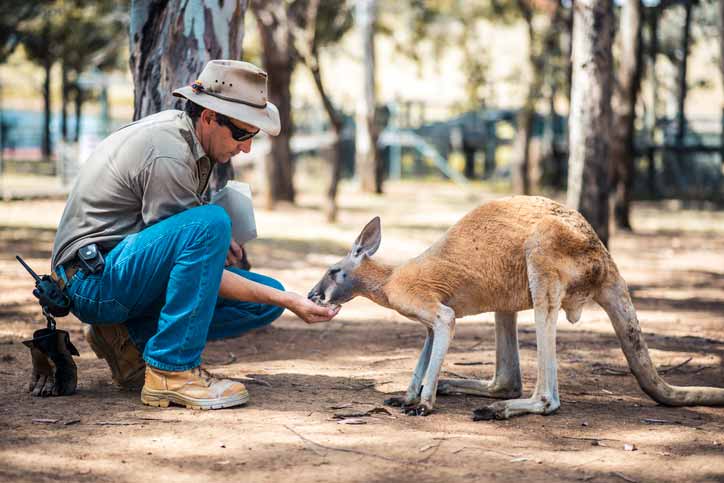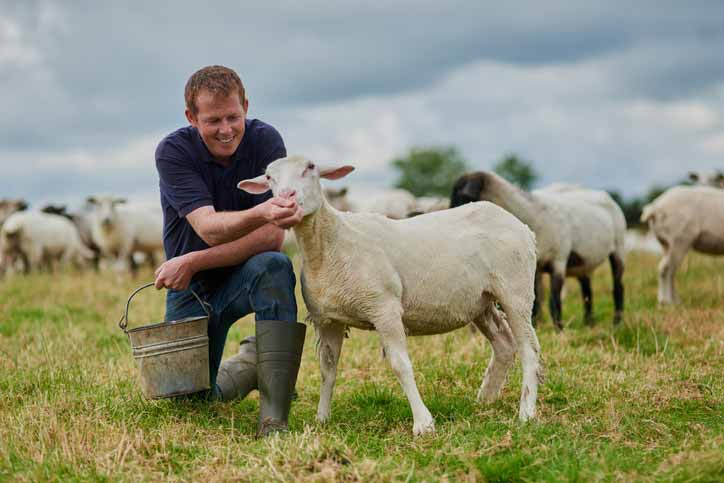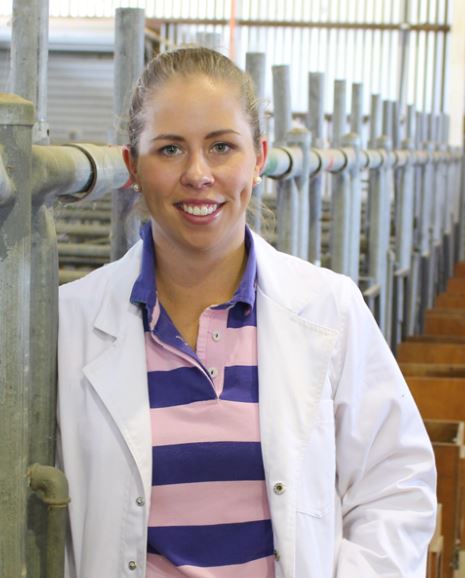Dreaming of a career working with animals? Then get set for an exciting adventure. Whether you’re into furry friends or wild critters, there are endless ways to make a real impact. From jungles to vet clinics, zoos to farms, the options for your career are seriously diverse.
Your journey to an animal career kicks off with dedication, learning and a whole lot of heart – which we know you’ve already got in abundance. In this article, we’ll dive into your potential career paths, and the qualifications and skills you need to make it happen.

How to work with animals
There are so many opportunities when it comes to a career working with animals. But how do you get there?
Let’s break it down.
Discover your passion: What makes your heart sing in the animal kingdom? Whether it’s understanding their behaviour, nurturing them, or saving endangered species, pinpoint your animal passion. Horses, wildlife, farm animals or pets – where does your curiosity lead you?
Research: So, time to do some detective work! Find out what it takes to be a veterinarian, a wildlife biologist, a zookeeper. The education you need, what kind of salary you might expect, and how the job outlook is predicted to play out.
Get your hands dirty: Roll up your sleeves and volunteer at animal shelters, wildlife rehabilitation centres, or local farms and stables. If you’re old enough, you could also go for internships or part-time jobs at veterinary clinics or pet stores. The more experience you have working with animals, the clearer your path will become.
Study up: Plot the education steps to your dream career. Take some science subjects in high school, particularly biology. That’ll help you when you move onto an animal-related degree, which will prep you like a pro for whichever career working with animals you choose. You can also look at specific additional training with organisations like the RSPCA and WIRES.

Essential soft skills for a career working with animals
Besides scientific and technical know-how, there are several soft skills that are super useful in any animal-focused career.
- Compassion and empathy: Kinda goes without saying, but understanding the needs and emotions of animals is crucial for providing proper care and support.
- Patience and adaptability: Working with animals often means responding to unpredictable situations. Being patient and flexible helps you roll with the unexpected and handle any situation like a pro.
- Communication: Effective communication is vital for conveying information to colleagues, clients and the public, especially when it comes to spreading the word about animal care and welfare.
- Problem-solving: Sometimes, things can get a bit hairy in the animal kingdom. But with a sharp mind and quick thinking, you can tackle any challenge.
- Attention to detail: Paying attention to subtle cues and changes in behaviour or health is essential for early detection of problems and timely intervention.
- Physical fitness: Many animal-related careers involve physical tasks such as lifting, handling or outdoor activities, so stay fit and strong.
Exploring career paths
Alright, buckle up. Lets dive into some of your options for a career working with animals. This list isn’t everything, but it’s a great place to start.
Work with wildlife
- Wildlife biologist: conducts research and monitors populations, habitats and behaviours of wild animals.
- Park ranger: manages wildlife reserves and national parks, ensuring the public can enjoy them while their unique ecosystems stay wild.
- Wildlife rehabilitator: cares for injured, orphaned or sick wild animals with the goal of releasing them back into the wild.
Careers with farm animals
- Livestock manager: oversees the care, breeding and health of animals down on the farm.
- Animal nutritionist: develops diets and feeding programs to keep the health and productivity of farm animals at their best.
- Farm animal welfare inspector: ensures that farm animals are treated humanely and that facilities comply with welfare regulations.
Careers working with zoo animals
- Zookeeper: provides daily care for zoo animals, including feeding, enrichment (giving them fun stuff to do) and maintaining their enclosures.
- Zoo educator: conducts educational programs and presentations for visitors about zoo animals and conservation efforts.
- Wildlife conservation officer: enforces laws and regulations related to the conservation and protection of zoo animals.
Jobs with aquatic animals
- Marine biologist: Studies organisms and ecosystems beneath the waves, including fish, mammals and also invertebrates.
- Aquarist: manages the care and maintenance of animals in aquariums and marine parks.
- Fisheries biologist: researches and manages fish populations and aquatic habitats for conservation and also sustainability.
Work with endangered animals
- Conservation biologist: designs and implements strategies to protect and restore endangered species and their habitats.
- Wildlife conservation manager: leads the charge in safeguarding our precious wildlife, as well as researching and advocating for protective policies.
- Wildlife ecologist: studies the relationships between endangered species and their environments to craft blueprints for conservation.
Careers working with horses
- Equine veterinarian: provides medical care to horses, including preventive care, diagnosis, treatment of illnesses and injuries, and also surgical procedures.
- Equine facility manager: oversees the daily operations of horse farms, stables or equestrian centres, including staffing, facility maintenance, horse care and also business management.
- Equine nutritionist: develops feeding programs and dietary plans to meet the nutritional needs of horses based on factors such as age, breed, activity level and health status.
Veterinary careers
- Veterinarian: provides high-level care to animals, from pets to livestock.
- Veterinary technician: assists veterinarians with treatments and tests to make sure animals get the best care.
- Veterinary pathologist: studies what makes animals sick and how to keep them healthy through lab work and research.
Charles Sturt alumnus Tristan Robinson decided to become a vet. Here’s why:
“Working with animals is definitely enjoyable, especially the science behind it and problem-solving. It definitely has its challenges, and you need to work hard and have lots of resilience, but overall the career is very interesting and definitely enjoyable. With animals, obviously they can’t talk, so we’ve got to be a big advocate for what’s best for the animal.”
Where you could work
- Government agencies: keep an eye on agriculture and wildlife regulations to make sure everything’s in balance.
- National parks, State forests, protected marine areas: ensuring everyone can enjoy nature while keeping it safe and wild.
- Environmental protection agencies: enforce the rules that keep wildlife and nature thriving.
- Conservation non-profits: save animals and their homes through research and habitat restoration.
- Zoos, aquariums and wildlife parks: join a zoo crew as a zookeeper, educator, researcher or conservationist.
- Conservation and ecotourism companies: lead wildlife tours, do field research and help conserve nature.
- Veterinary clinics and hospitals: help sick animals at veterinary clinics and hospitals, whether as a vet, vet tech or part of an admin team.
- Farms and ranches: work taking care of livestock, managing operations or even breeding animals.
- Research institutions: delve into animal research at universities, research institutes and government agencies, studying everything from animal behaviour to disease management.
Research is the area Charles Sturt alumna Lucy Watt decided was the right path for her career working with animals:

“Agricultural research is especially enticing. Farmers and people in the industry are always looking at ways to improve the industry. And what’s more exciting than being able to contribute to your industry from the roots? Animals have been a really big part of my life. I love the research side of the industry and there aren’t many young people who tend to go into agriculture. So I saw it as a really good career choice.”
Start your career working with animals
At Charles Sturt, we’ve got a degree that will set you on your way – wherever you want to take your career with animals. Choose from:
- Bachelor of Animal Science1
- Bachelor of Environmental Science and Management2
- Bachelor of Equine Science3
- Bachelor of Science
- Bachelor of Veterinary Biology / Bachelor of Veterinary Science4
- Bachelor of Veterinary Technology
1Cricos: 068972G
2Cricos: 103015C
3Cricos: 012005G
4Cricos: 068968D



You must be logged in to post a comment.